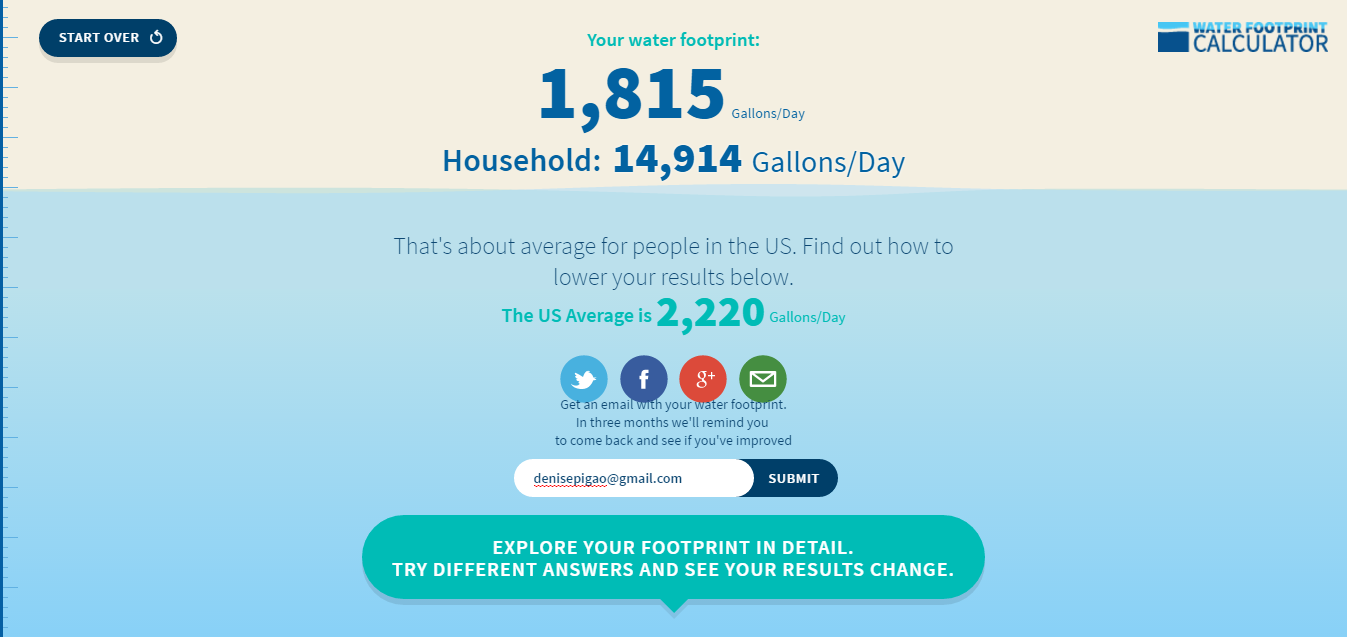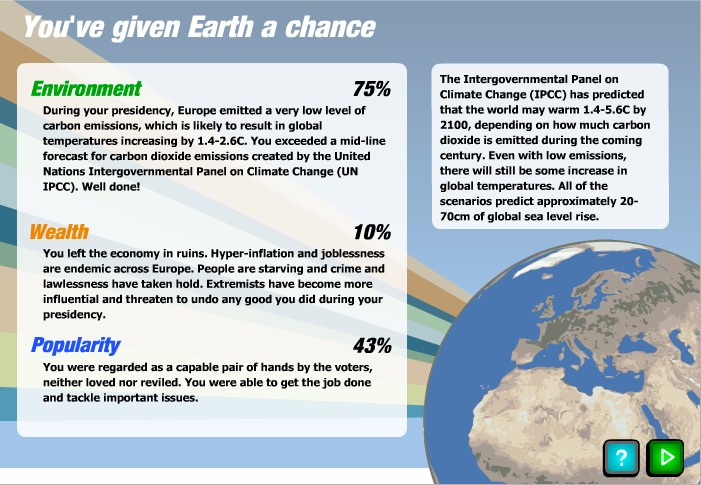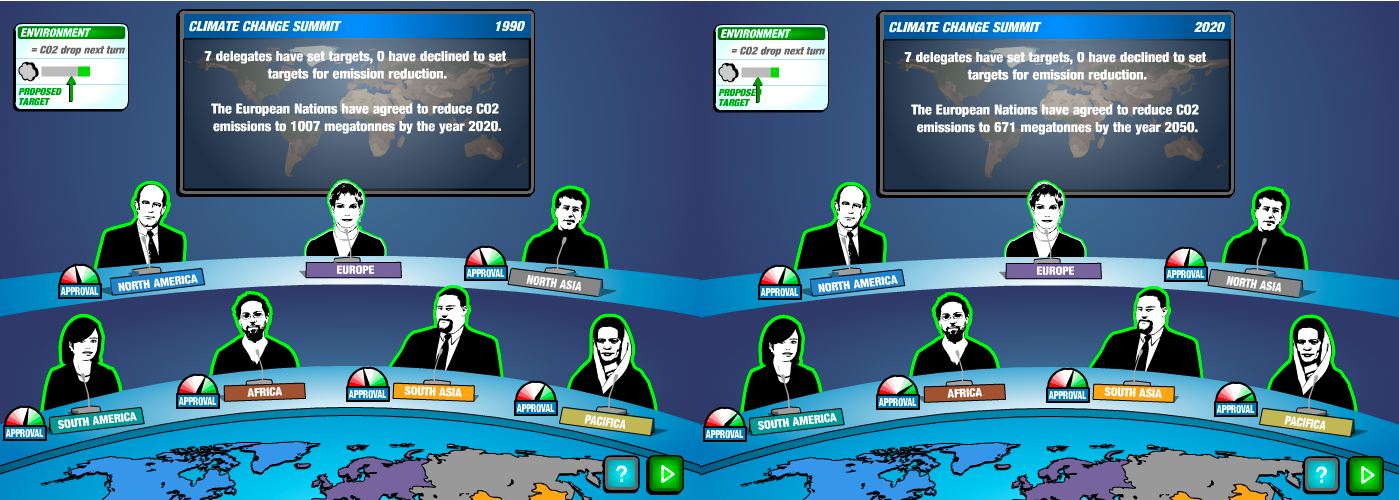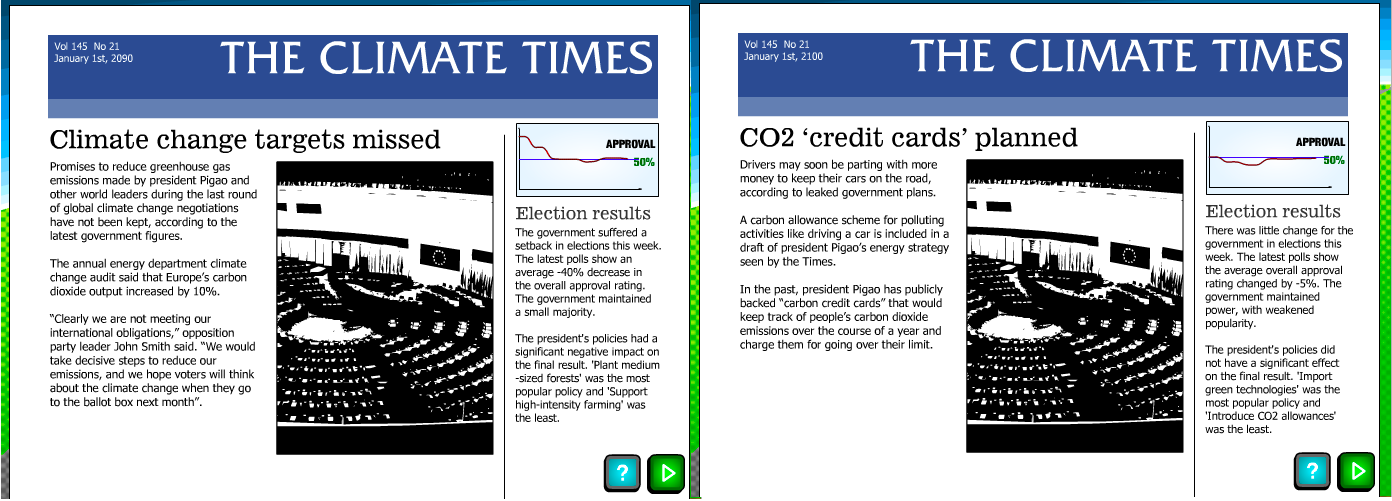Blogs
As a part of the first few activities in this Decarbonize: BlueYouth COP22 campaign, we tried to compute for our approximate daily water consumption with the aid of a simple program provided for us, which can be found in this link (http://www.watercalculator.org/) if you happen to also want to find out your approximate daily water consumption. Then, we played a simple-looking, yet complicated simulation game of role-playing as a politician in a European country, with the goal of lessening our Carbon Emissions, while also raising the satisfaction of the people and the economy of the country. which can be played by pressing this link (http://www.bbc.co.uk/sn/hottopics/climatechange/cl... All in all, these activities have helped me in understanding more about how we should tackle the challenges of climate change and water scarcity. These have been evidently relevant in my context as it gives me a deeper understanding of what climate change and water scarcity is. This has also opened my eyes to the challenges that are being presented to the world, especially the youth.
Me Water World: Our Current Context

In the water footprint activity, it showed how much water I approximately consumed daily. Although I thought that I consumed little amount of water in a day, considering how fast I take a shower and how particular I am in making sure that I don’t let the water flow from the faucet, I still got a high consumption value. Surprisingly, the factor that really contributed to my high water consumption is the fact that I’m a meat-eater. I didn’t know that so much water was being consumed by eating meat, I always thought that only a lot of Carbon Dioxide was being consumed when eating a lot of meat. This actually gives me a sense of awareness that I still do consume too much water, even if I try to make efforts not to. Water is said to be a renewable resource, but the sad part about it is that water is scarce and is being depleted because of the constant contamination that it undergoes.
I can see that this relates to my community as everyone uses water on a daily basis. Most of the time as well, I see people either wasting water by letting the water run or using too much water by doing certain activities. So, because of this awareness, especially after the simulation, I am able to think more about what concrete actions I can make in lessening my daily water consumption. I think in order to really battle something, we all need to be made aware first. Then, by knowing the factors that really contribute to our high daily water consumption, we are able to find our place in fighting climate change and that is in our own homes. Which then in turn, has changed my way of thinking. I always thought that in order to initial change, I needed to gather a big group of people and start big changes for the environment. But I was wrong there, not only I, but everyone needs to start change in the smallest of details, first, before venturing into the bigger details because if you can’t change the smallest of details, then how can you expect to change the biggest of details?
According to the simulation provided to me and my class, I consume approximately 1,800 gallons of water daily and if I were to multiply that by 7, I’d be consuming approximately 12,600 gallons of water weekly. I know that water is essential in our daily lives. It is quite hard to lessen our water consumption, especially with the added activities we have everyday. Water has always been a big part of our lives, biologically and agriculturally. During the Horticultural Era, the people back then would place themselves in places with water nearby because this helped in the cultivation of crops. Then, during the Agricultural Era, people realized the value of water, which is one of the factors that caused them settle themselves in one place. Water has always been a game changer, even back then. Until now, we see the value of water, but instead of discovering the value of water through new discoveries, like agriculture, we see the value of water through the scarcity of this in many communities around the world.
Climate Change Activity

As for the Climate Change Challenge, it gave me a semi-experience of how hard it is to run a country while having a lot of factors to think about, namely the Environment, Popularity, and Economy. This simulation game has given me the realization that it isn’t easy to cut down on Carbon Emissions, especially if that country is trying to keep the economy high and stable. The different factors present in the simulation game have different concepts embedded into it. For one thing, the Popularity factor can be greatly related to my community because in the simulation game, you need to keep your popularity up as a politician of the country you are running. Then, as for the wealth of the country, this needs to be stable and and rising to ensure the thriving of the country. Now, for the environment, the Carbon Dioxide emission of the country must be reduced to a certain amount after every ten years, which is where a simulation of an Environmental Summit Conference. In this part, I either have to invest in a country's environmental projects or I have to set an example for the other world leaders to see. This just goes to show that before any country actually makes a decision on whether or not to venture into a new project or idea, it has to be proven to be effective, especially in balancing the other factors embedded within this simulation game.

As I first played the game, I had very high approval rates from the people of my country and I did well in raising my country's economy and lessening my country's CO2 emissions. That was until I got into the latter part of my journey as a simulated politician. I had a hard time meeting the standards and requirements for the lessening of the CO2 emissions because I had to balance between my country's wealth and my own popularity. There was a point wherein I just gave up on the importance of my popularity and just poured all efforts on the environment and the wealth of my country. I though I was already able to lessen as much CO2 emission as possible, I still could not meet the standards of the final turn.

This kind of ticked me off and I attempted to try the simulation game again, but then I thought of asking first my other classmates about their results and most of them would have a least one factor, out of the three,that had really low ratings. Then, I realized that there is no way to get 100% for all the factors in the simulation game. This simulation game has really given me insights about life and changed the way I think.
First, I realized that it is not possible to have everything. There will always be something that is high and something that is low. There will always be something that is positive and something that is negative. In this case, it is seen that if we want to save the environment, we would have to either sacrifice our popularity or sacrifice our wealth. Not everything will be fair and we need to outweigh the negative factors with positive ones by thoroughly studying the different factors presented to us.
Second is that it sure is hard to be a politician, especially when a politician has goals to change the country. Before I'd always ask why world leaders would hesitate in agreeing to the ideas of lessening their CO2 level. Through this game, I was able to somehow experience the hardships of being a leader of country. Although I do want to save the environment, I'd still have to think of the other factors. I guess this is why world leaders are slow in implementing campaigns like this is because the different countries first want to find out if it is feasible to still prosper as a country, even while limiting to the country's own CO2 emissions.
Lastly, I realized that it is important to take action. Although I am aware of the things that are happening around me, but if I don't do anything, then I wouldn't be engaged to this world, a world that need the response of the people to its cry. You will inspire others to take action if we do not initiate the change for our selves?
Our world leaders should not be the only ones to take action and adjust, but all of us have to be engaged.
